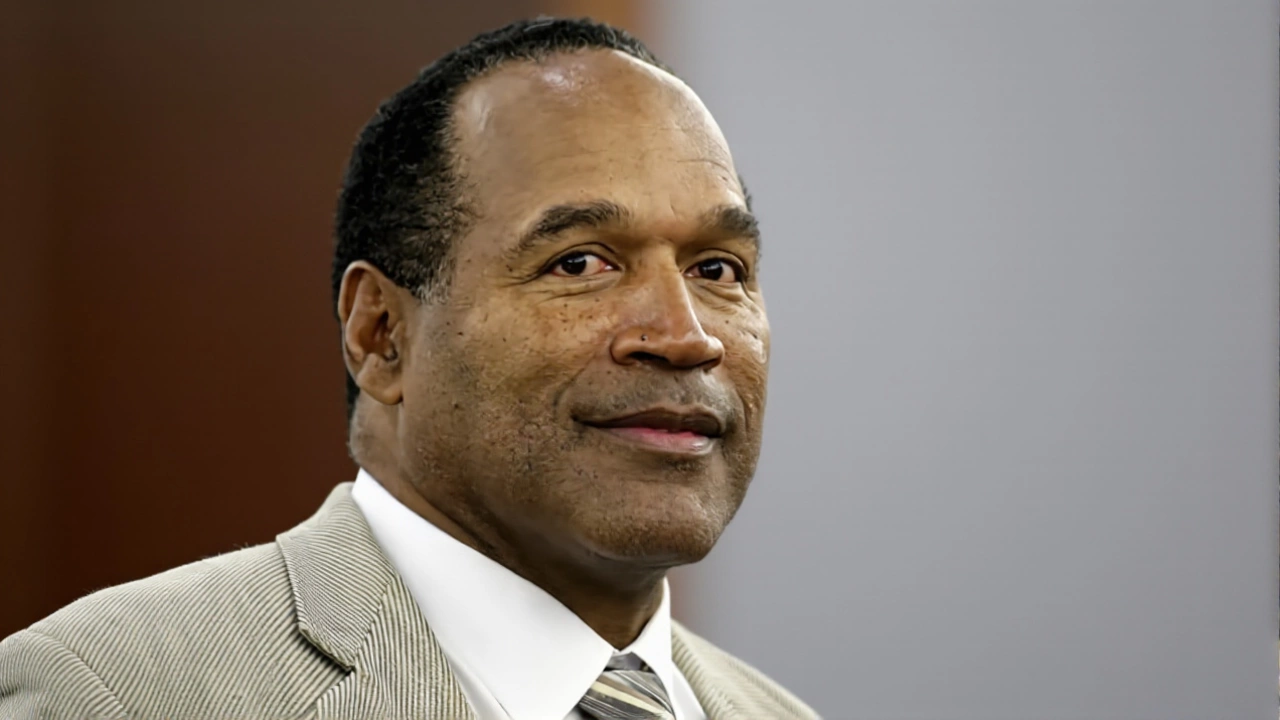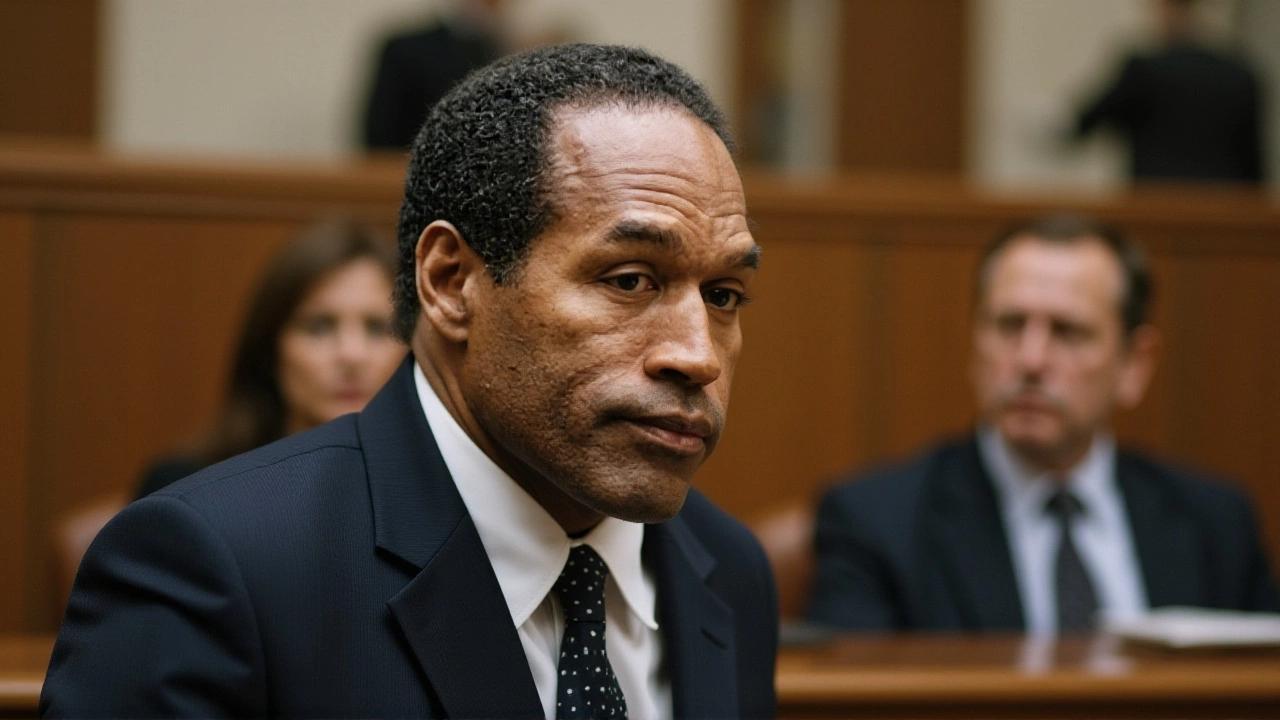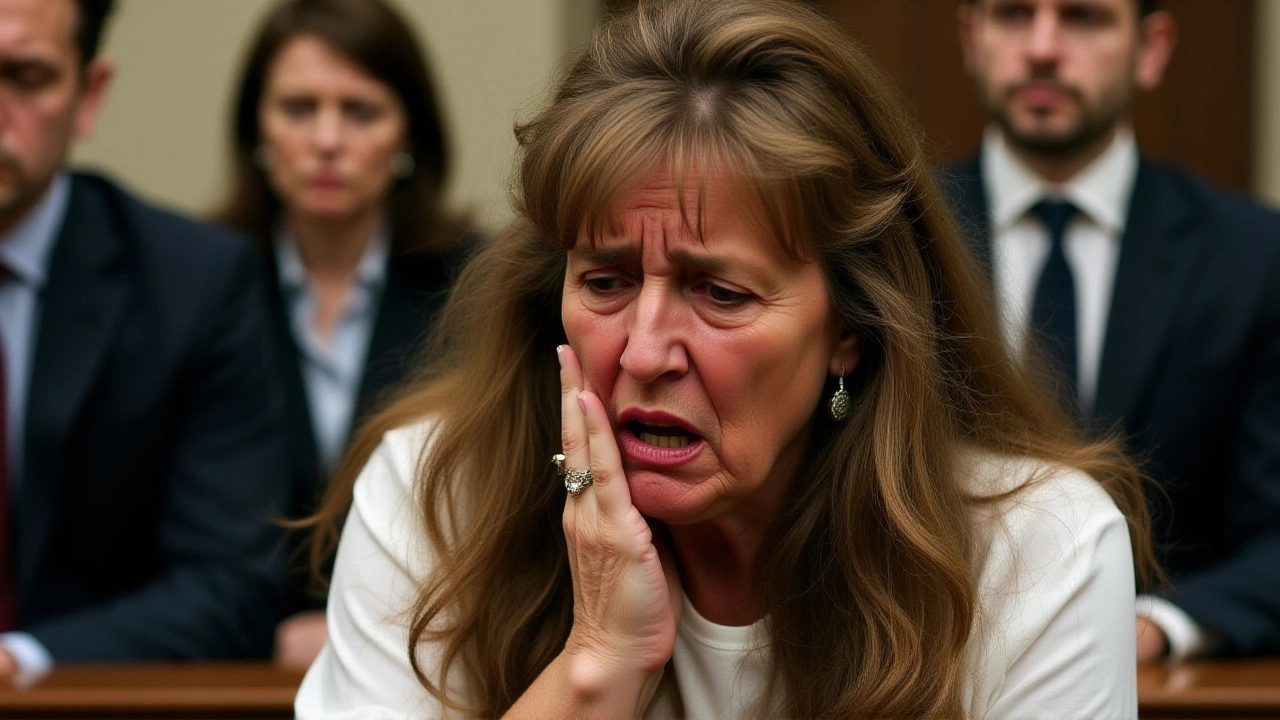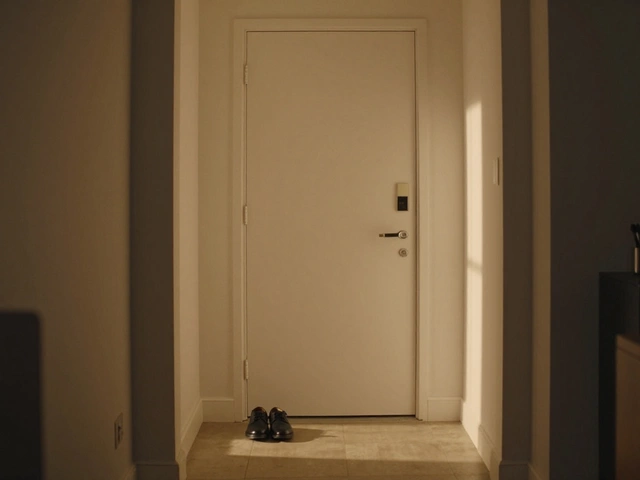Exactly thirty years after the verdict that shocked America, the legal consequences of O.J. Simpson’s acquittal still echo — not in the courtroom, but in the quiet, relentless pursuit of justice by the family of Ron Goldman. On October 3, 1995, a jury in Los Angeles County Superior Court found Orenthal James Simpson not guilty of murdering his ex-wife Nicole Brown Simpson and her friend Ron Goldman. The decision, delivered in Department 103 at 210 West Temple Street, ended a 473-day trial watched by over 100 million Americans. But while Simpson walked free, the civil case that followed never let go. A 1997 jury found him liable for their deaths and ordered him to pay $33.5 million — a sum that, with interest, has ballooned to more than $100 million. And still, nearly three decades later, the Goldman family has recovered only a fraction.
The Verdict That Split a Nation
The trial was a cultural earthquake. The defense, led by Johnnie L. Cochran Jr., turned forensic evidence into theater. When Simpson struggled to slip on the bloody gloves, Cochran’s line — "If the gloves don’t fit, you must acquit" — became a national mantra. The jury, composed mostly of Black Americans, deliberated just four hours. Meanwhile, the prosecution had presented DNA evidence tying Simpson to the crime scene. Many were stunned. The acquittal didn’t just free a man — it exposed deep fractures in how race, celebrity, and justice intersected in America.
That same year, President Bill Clinton, though likely disagreeing with the verdict, publicly respected the jury’s authority. "He didn’t stoke outrage," noted the Amsterdam News in a 2025 op-ed. "There were no riots. No political leaders poured gasoline on the fire." Contrast that with today’s climate, where social media turns every courtroom into a battleground. "If this trial happened now," said Meg Coffey, who followed it as a teenager, "I can’t imagine what would go on. The country is having enough issues as it is."
The Civil Trial Nobody Talked About — Until Now
While the criminal case ended in acquittal, the civil trial in 1997 was a different story. A lower burden of proof — "preponderance of evidence" rather than "beyond a reasonable doubt" — meant the jury didn’t need to be unanimous. They found Simpson responsible. The judgment: $33.5 million to the families. By 2025, with compound interest, that figure had climbed past $100 million. The Goldman family, led by Ron’s father Fred Goldman, became the unwavering enforcers of that verdict.
They didn’t wait for Simpson to pay. They seized assets: royalties from his book If I Did It, memorabilia, even his Heisman Trophy. But Simpson, ever resourceful, shielded wealth through trusts and family members. After his 2008 conviction for an armed robbery in Las Vegas — and his release in 2017 after serving nine years — he lived modestly. He died in April 2024 at 76, his estate reportedly worth little beyond his name.

Why the Money Still Isn’t Paid — And Why It Matters
Legal experts confirm: the civil judgment remains enforceable against Simpson’s estate. But collecting on it is another matter. "You can’t collect from a man who has no assets," said attorney Lisa Tran, who specializes in judgment enforcement. "The law gives you the right to pursue, but not the guarantee of payment."
Still, Fred Goldman has never stopped. He’s pursued claims against Simpson’s insurance policies, challenged transfers of property to relatives, and even lobbied for state laws to prevent convicted wrongdoers from profiting from their crimes. "It’s not about the money," he told KTLA in 2023. "It’s about saying what happened to Ron mattered. That he wasn’t just a footnote in a celebrity trial."
The Parade article from October 3, 2025, put it plainly: "More than three decades later, the murders remain unsolved." The criminal case is closed. The civil case is open — in theory. But in practice, the judgment hangs like a ghost. The LAPD, once accused of misconduct by Simpson’s defense — particularly by detective Mark Fuhrman — still denies systemic cheating. Yet the damage to public trust lingers.
A Legacy That Won’t Fade
The O.J. Simpson case wasn’t just about murder. It was about the limits of justice when power, privilege, and race collide. It was about a nation divided — and how that division has only deepened. The Amsterdam News captured it best: "Thirty years ago, half the nation exhaled in relief. The other half gasped."
Today, the Goldman family still files annual motions in court. They still track every asset Simpson might have touched. They still speak at schools, to journalists, to anyone who’ll listen. And while the money may never come, they’ve ensured one thing: Ron Goldman’s name is never buried.

What’s Next for the Goldman Family?
With Simpson gone, the legal path is narrower, but not closed. The family’s attorneys are exploring whether any trusts or third parties who benefited from Simpson’s estate can be held liable under fraudulent transfer laws. They’re also pushing for federal legislation to make it easier for victims’ families to claim proceeds from books, documentaries, or merchandise tied to crimes. "We’re not giving up," said Fred Goldman in a recent interview. "Not until the last dollar is accounted for — even if it’s just a dollar."
Meanwhile, the case remains a textbook example in law schools, a cautionary tale in sociology classes, and a haunting memory for those who watched it unfold on TV. The gloves may have been too small. But the truth, for many, never fit either.
Frequently Asked Questions
Why hasn’t the $100 million judgment been paid despite Simpson’s death?
Although Simpson’s estate is legally liable for the civil judgment, he left behind few liquid assets. Most of his wealth was either transferred to family members before his death or tied up in trusts shielded from creditors. The Goldman family has pursued claims against insurance policies and royalties, but enforcement is limited by state laws protecting certain assets from judgment collection.
Can the Goldman family still collect money from Simpson’s estate today?
Yes, but only if assets can be identified and proven to belong to Simpson’s estate at the time of death. The family has filed claims against potential hidden assets, including royalties from documentaries and book sales. However, California law prioritizes debts like taxes and funeral costs over civil judgments, making recovery unlikely unless new assets surface.
How did the civil trial differ from the criminal trial?
The criminal trial required proof "beyond a reasonable doubt" and a unanimous jury verdict, which failed. The civil trial only needed a "preponderance of evidence" — meaning more likely than not — and allowed a non-unanimous jury. That lower threshold, combined with different legal strategies, led to the 1997 liability finding even after the acquittal.
What role did race play in the trial’s outcome?
Race was central. The defense successfully framed the LAPD as racially biased, especially after Detective Mark Fuhrman was exposed for using racial slurs. With eight Black jurors, many saw the case as a referendum on systemic police misconduct. The verdict reflected not just doubt about evidence, but deep distrust in institutions — a sentiment still echoed today.
Why is Fred Goldman still pursuing this case after 30 years?
For Fred Goldman, it’s about legacy. He believes justice isn’t complete without accountability — even if it’s financial. He’s turned the case into a platform to advocate for victims’ rights, pushing laws that prevent criminals from profiting from their crimes. "Ron deserves to be remembered as a person, not a headline," he says.
How has public perception of the case changed since 1995?
In 1995, many saw the acquittal as a victory for justice. Today, most view it as a failure — fueled by celebrity, media circus, and racial polarization. With social media amplifying every legal twist, the case now symbolizes how easily truth can be drowned out by spectacle. Even TMZ’s Harvey Levin, who covered the trial, now says, "I’m sure Simpson did it."





Write a comment